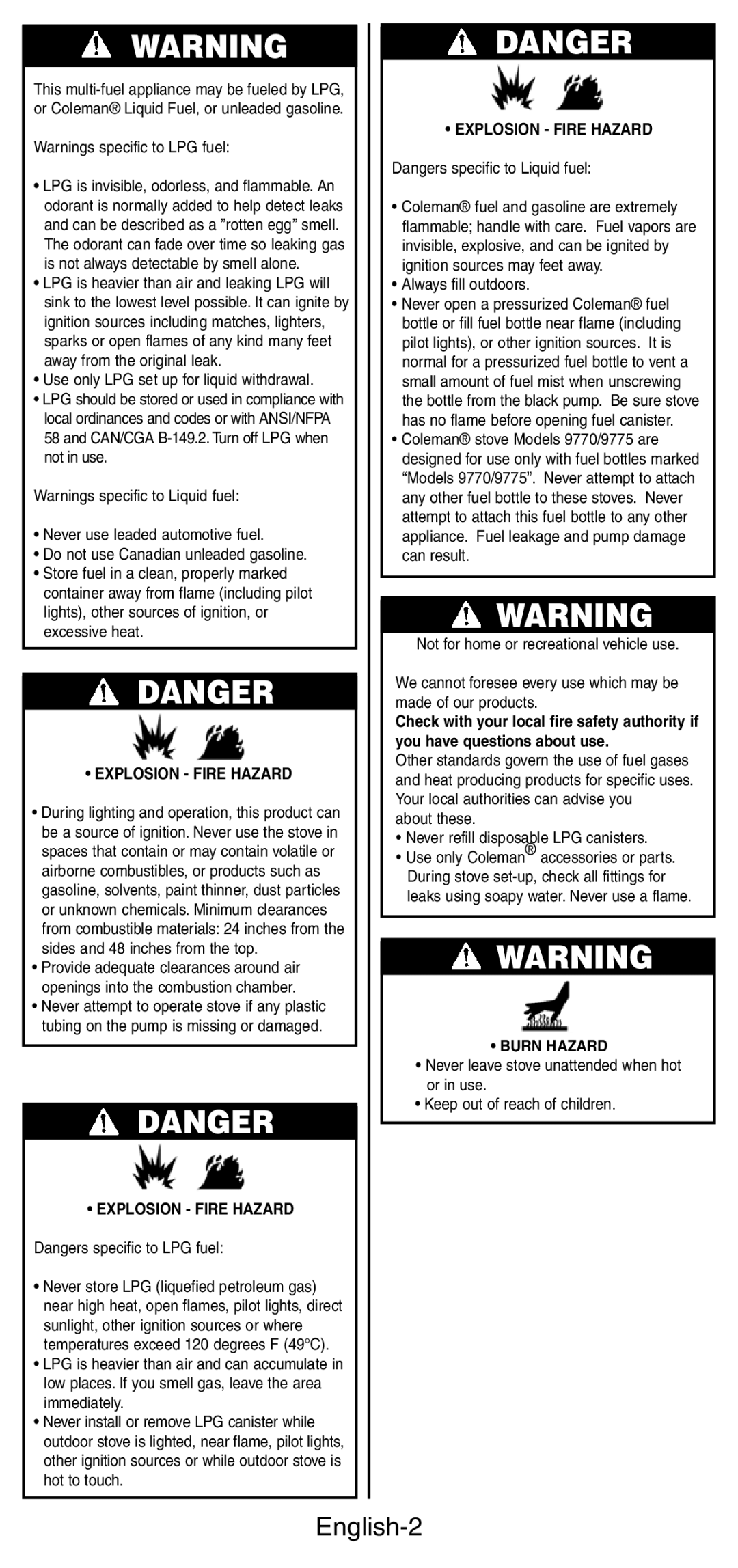9770, 9775 specifications
The Coleman 9775 and 9770 are popular camping and outdoor cooking apparatuses that have garnered attention for their reliability, innovative features, and user-friendly designs. These stoves exemplify Coleman's commitment to making outdoor cooking an enjoyable experience for adventurers, campers, and backyard chefs alike.The Coleman 9775 is a dual-fuel stove that can operate on either propane or liquid fuel. This versatility is one of its standout features, allowing users to choose the fuel source that best fits their needs and circumstances. The stove is designed to provide robust heat output, featuring two high-powered burners that deliver ample cooking efficiency for various outdoor meals. The adjustable heat controls enable precise temperature management, making it suitable for simmering delicate sauces or achieving a rapid boil for pasta or rice.
The structure of the Coleman 9775 includes a sturdy stainless-steel construction, which is not only durable but also easy to clean. The incorporation of windshields helps to maintain a consistent cooking flame even in breezy conditions, a feature that outdoor enthusiasts will find invaluable during unpredictable weather. Additionally, the compact design allows for efficient packing and transport, making it an ideal choice for camping trips or tailgating events.
On the other hand, the Coleman 9770 is designed with a focus on portability and ease of use. This model features an integrated handle and lightweight design, making it easy to carry to different outdoor locations. The 9770 also boasts a user-friendly ignition system, allowing for quick starts without the need for matches or lighters.
Both models are equipped with a built-in fuel gauge, enabling users to monitor fuel levels at a glance. This ensures that campers won’t get caught off guard without enough fuel during their meals.
Whether you are an experienced camper or a casual day-tripper, the Coleman 9775 and 9770 provide reliable cooking solutions that prioritize efficiency, portability, and ease of use. Their robust features and quality construction showcase Coleman's dedication to enhancing outdoor cooking experiences, making them valuable additions to any camping kit or outdoor adventure.

